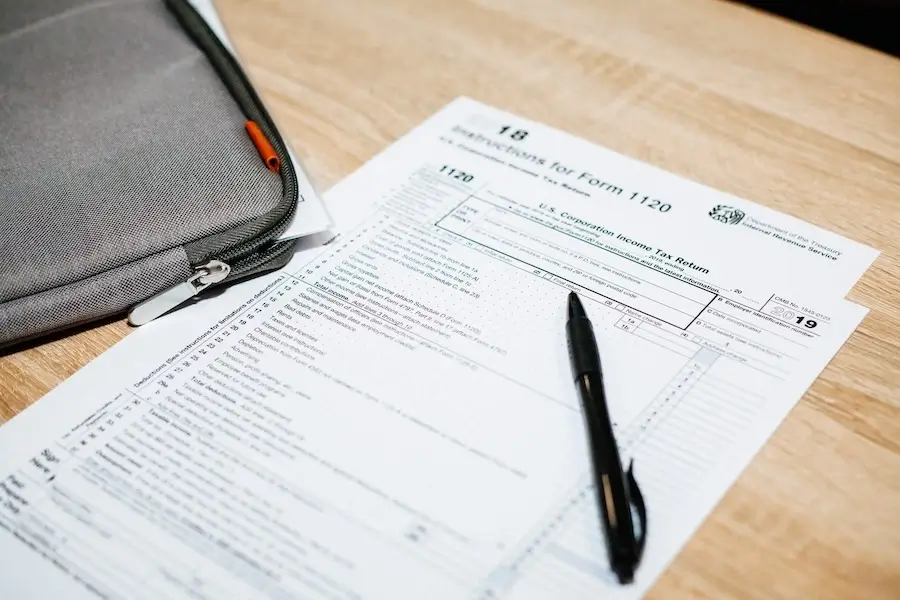Key Singapore Government Agencies Every Entrepreneur Should Know
List of Singapore Government Agencies To Be Discussed
Accounting and Corporate Regulatory Authority (ACRA)
At the heart of Singapore's business ecosystem lies the Accounting and Corporate Regulatory Authority (ACRA), a pivotal institution under the Ministry of Finance. Established in 2004, ACRA plays a central role in regulating business entities, public accountants, and corporate service providers.
ACRA oversees the following:
- Business Registration: ACRA manages the process of registering companies in Singapore and issuing business entities with unique identification numbers.
- Business Compliance: ACRA ensures businesses adhere to statutory requirements, including submitting annual returns and financial statements.
- Corporate Service Providers: ACRA regulates and oversees entities providing corporate services to businesses, ensuring they adhere to established standards.
- Public Accountants: ACRA sets and enforces standards for public accountants, promoting transparency and integrity in financial reporting.
- BizFile Portal: ACRA operates the BizFile portal, an online platform facilitating business registration, filing, and information retrieval.
- Domain Registration: ACRA collaborates with the Singapore Network Information Centre (SGNIC) to offer domain registration services, including .com.sg and .sg domains.
- Accounting Standards: ACRA plays a role in setting accounting standards for various entities, contributing to financial transparency and innovation.
You are welcome to read more about ACRA - Singapore Company Registrar in our comprehensive article.
Inland Revenue Authority of Singapore (IRAS)
The Inland Revenue Authority of Singapore (IRAS) holds a pivotal role as the primary tax administrator for the Singaporean government. As the central authority overseeing tax matters, IRAS engages with businesses as they navigate a spectrum of tax requirements, including:
IRAS manages the following:
- Corporate Taxes: IRAS administers and enforces corporate income taxes, ensuring businesses fulfill their tax obligations.
- Individual Taxes: Managing individual income taxes, IRAS ensures proper reporting and compliance with tax regulations by individual taxpayers.
- Withholding Taxes: IRAS regulates and oversees withholding taxes, which apply to various payments such as interest, royalties, and services provided by non-residents.
- Goods and Services Tax (GST): IRAS is responsible for the administration of GST, a value-added tax on the supply of goods and services in Singapore.
- Property Taxes: IRAS administers and provides detailed information on property taxes, covering aspects such as stamp duties and property-related transactions.
- Tax Incentives: IRAS provides information on and administers various tax incentive schemes in Singapore to encourage specific activities or industries.
- Tax Treaty Negotiations: As tax treaties are integral to Singapore's economic framework, IRAS actively participates in negotiations to prevent double taxation and promote international trade.
- Drafting Tax Legislation: IRAS contributes to the process of drafting tax legislation, ensuring clarity and relevance in the evolving business landscape.
Ministry of Manpower (MOM)
The Ministry of Manpower (MOM), a prominent ministry within the Singaporean government, plays a crucial role in shaping and executing policies pertaining to the nation's workforce. Since the Ministry of Labor was rechristened as MOM in 1998, the ministry has been at the forefront of fostering a dynamic and productive labor environment.
MOM oversees the following:
- Work Visas: MOM manages and processes applications for various work visas, including the Employment Pass, Entrepreneur Pass, Personalized Employment Pass, ONE Pass, and others.
- Visas for Family Members: MOM handles applications for passes related to family members of work visa holders such as the Dependent’s Pass and Long-Term Visit Pass.
- Workforce Management: MOM provides resources and information on crucial aspects of employment, including employment practices, workplace safety, and health requirements.
- Statutory Boards Oversight: In addition to MOM's direct responsibilities, it oversees three key statutory boards: the Central Provident Fund Board, the Singapore Labour Foundation, and Workforce Singapore.
- Labor Policies: MOM formulates and executes policies related to the workforce, covering areas such as employment regulations, working conditions, and labor rights.
- Skills Development: The ministry actively promotes and supports skills development initiatives to enhance the capabilities of the local workforce.
- Employment Statistics: MOM compiles and publishes comprehensive statistics related to employment, providing insights into the dynamics of the labor market.
Central Provident Fund Board (CPF)
The Central Provident Fund (CPF) stands as a cornerstone in Singapore's financial landscape, serving as a pension fund designed to secure the retirement and future financial well-being of Singapore residents and permanent residents. Participation in this comprehensive savings and pension plan is mandatory for working individuals, encompassing provisions for retirement, healthcare, education, and housing needs.
CPF regulates the following:
- Mandatory Contributions: CPF manages the mandatory contributions made by both employees and employers, ensuring compliance with stipulated rates.
- Investment and Administration: The board is responsible for the prudent investment and administration of CPF funds, aiming to generate returns for its contributors.
- Retirement Planning: CPF provides a framework for individuals to plan for their retirement, offering various schemes and options tailored to different needs.
- Healthcare Financing: A portion of CPF contributions is dedicated to the MediSave fund, supporting healthcare expenses for individuals and their dependents.
- Education and Housing Schemes: CPF incorporates provisions for education and housing, allowing contributors to utilize their savings for these purposes.
- Interest Rates: CPF sets and announces interest rates on contributions periodically, impacting the returns and growth of individual CPF accounts.
- Online Services: CPF offers an array of online services, allowing contributors to manage their accounts, check balances, and make transactions conveniently.
Economic Development Board (EDB)
Navigating the complexities of starting a business in a foreign country demands insights into local incorporation processes and the support available. The Singapore Economic Development Board (EDB) is a crucial ally for business owners exploring the potential of their ventures in Singapore.
EDB oversees the following:
- Investment Promotion: EDB actively promotes Singapore as an attractive destination for foreign investments, collaborating with international businesses to identify growth opportunities.
- Industry Development: The board focuses on developing and enhancing key industries in Singapore, aligning strategies with emerging global trends.
- Business Expansion: EDB facilitates the expansion of existing businesses, offering support and incentives to encourage growth and sustainability.
- Global Investor Programme (GIP): One notable initiative, the Global Investor Programme, assists individual investors seeking to move to Singapore, contributing to the nation's economic vibrancy.
- Research and Development (R&D): EDB collaborates with businesses and research institutions to foster innovation and technological advancements.
- International Collaboration: The board actively engages in international collaborations to strengthen Singapore's position in the global market and drive economic growth.
- Talent Development: EDB works towards developing a skilled workforce, aligning educational initiatives with industry needs to meet the demands of a competitive business environment.
Enterprise Singapore (ESG)
Enterprise Singapore (ESG), a statutory board under the Ministry of Trade and Industry of the Government of Singapore, is a pivotal force in fostering the development of Small and Medium-sized Enterprises (SMEs) in the country. Established on April 1, 2018, through the merger of International Enterprise (IE) and SPRING Singapore, ESG operates as a comprehensive support agency, offering a suite of services to catalyze enterprise growth and internationalization.
ESG manages the following:
- Financial Assistance: ESG provides financial assistance in the form of grants, loans, and insurance, facilitating their growth and expansion.
- Non-Financial Aid: Beyond monetary support, ESG offers non-financial aid, including startup hubs, business toolkits, and collaboration platforms, fostering a conducive environment for SME development.
- Trade Facilitation: ESG actively promotes international trade for Singaporean businesses, facilitating market access and export opportunities.
- National Standards and Accreditation: ESG administers the Singapore Standardisation Programme, focusing on elevating the quality and safety standards of locally produced products and services.
- Networking and Collaboration: The agency collaborates with trade associations and chambers to facilitate networking sessions and knowledge transfer, creating a supportive ecosystem for SMEs.
- Skills Development: ESG plays a role in skills development, ensuring that SMEs have access to a skilled workforce by aligning initiatives with industry requirements.
- Singapore Accreditation Council (SAC): ESG, through SAC, manages accreditation schemes that support strategic initiatives related to market access, security, safety, and health.
SkillsFuture Singapore (SSG)
SkillsFuture Singapore (SSG) stands as a crucial pillar in the Singaporean government's commitment to fostering a skilled and adaptable workforce. Established in 2015 as part of the SkillsFuture initiative, SSG is tasked with providing lifelong learning and skills development opportunities for Singaporeans, regardless of their background or industry.
SSG oversees the following:
- Workforce Training Programs: SSG designs and implements various workforce training programs, ensuring that individuals have access to skill development opportunities throughout their careers.
- SkillsFuture Credit: SSG administers the SkillsFuture Credit initiative, providing Singapore citizens aged 25 and above with S$500 for personal learning and skills upgrading.
- SkillsFuture Development Levy (SDL): Employers are required to consult with SSG to register for the SDL, thereby contributing to the Skills Development Fund.
- Skills Development Fund (SDF): SSG manages the Skills Development Fund, which collects funds through the Skills Development Levy (SDL) imposed on employers. These funds are used to support workforce upgrading programs and provide grants for employees to enroll in accredited training courses.
- Consultation for Employers: SSG offers consultation services for employers, guiding them through the process of workforce development, training, and compliance with local regulations.
Considering Singapore?
Experienced team. Affordable cost. Online platform.
Industry-Specific Regulatory Bodies in Singapore
Monetary Authority of Singapore (MAS): Regulatory approval from MAS is crucial for businesses dealing with the finance, securities, futures exchange, clearing house, insurance, and asset-management sectors.
Ministry of Health (MOH): New hospitals, medical services centers, clinics, and healthcare facilities.
Board of Architects (BOA): Companies providing architectural services or employing professional architects.
Council for Estate Agencies: Real estate agents and agencies, to ensure adherence to industry standards.
Majlis Ugama Islam of Singapore (MUIS): Essential for businesses with Islamic names or those incorporating the terms 'Muslim' or 'Halal' in their business name.
Ministry of Defence: Companies involved in military or defense-related services.
Ministry of Education, Private Schools Department: Businesses whose names refer to terms such as 'school,' 'learning center,' 'education center,' or 'training center', particularly if they are academic in nature.
Ministry of Law: Companies offering legal services.
Institute of Singapore Chartered Accountants: Companies providing accounting and bookkeeping services.
Professional Engineers Board (PEB): Companies providing professional engineering services or employing professional engineers.
Singapore Police Force: Companies dealing with arms, explosives, and ammunition.
Singapore Tourism Board: Businesses using the Merlion symbol or name, as well as travel agents and agencies.
Registry of Co-operative Societies: Mandatory for registering co-operatives.
Hotels Licensing Board: Required if establishing a hotel.
Land Transport Authority: Companies in the transportation sector.
National Environment Agency: Businesses with environmental implications.
Learn About Incentives
Conclusion
In conclusion, thriving in Singapore's dynamic business landscape demands a thorough comprehension of the key government agencies that govern business activities. Effective communication with these authorities, encompassing the company incorporation process, license procurement, work pass acquisition, accurate tax filing, etc., ensures that your company operates within the legal framework and complies with regulatory standards.
When you’re considering incorporating a Singapore company, the choice of a professional corporate service provider is pivotal to guaranteeing your company's complete compliance. At CorporateServices.com, we specialize in simplifying Singapore's compliance landscape for businesses.
Our services cover:
- Efficient Incorporation: We offer hassle-free company setup, ensuring adherence to legal requirements for a smooth launch.
- Ongoing Compliance Support: Our expert team handles accounting, corporate secretarial tasks, and tax compliance, keeping your company in line with regulations.
- Expert Guidance: With our seasoned professionals, you'll receive timely advice and personalized solutions, staying compliant and avoiding penalties.
Contact our team for streamlined incorporation, guidance through compliance, and support in fostering your Singapore business growth.








